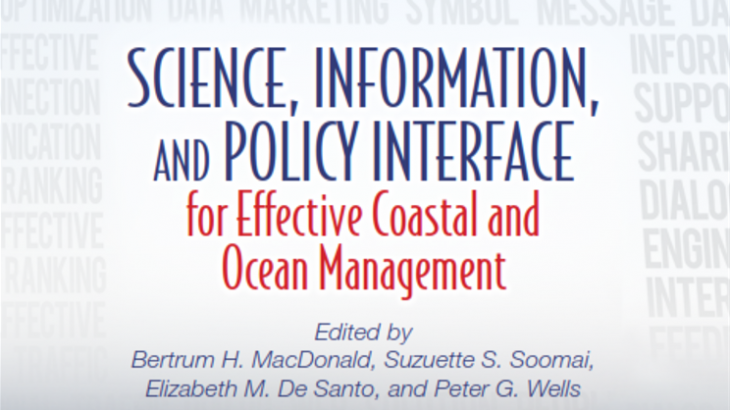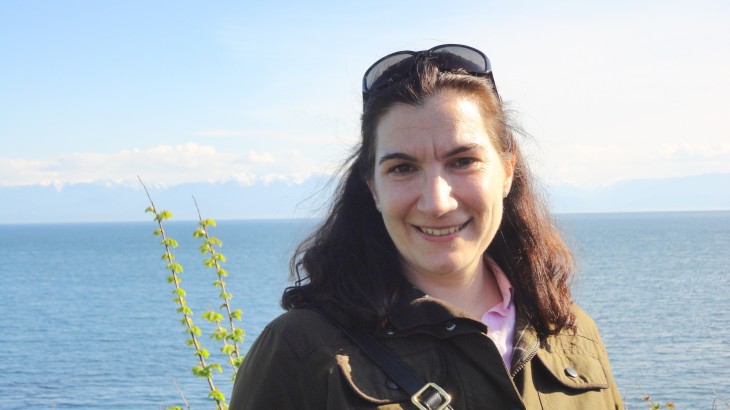“The Science-Policy Interface in Coastal and Ocean Management” is a series of posts highlighting the chapters in the new book: Science, Information, and Policy Interface for Effective Coastal and Ocean Management, edited by Bertrum H. MacDonald, Suzuette S. Soomai, Elizabeth M. De Santo, and Peter G. Wells, published by CRC Press (Taylor & Francis). Science, […]
Public Policy & Decision-Making
EIUI Team Member Raises Questions about the Practice of Establishing Remote Very Large Marine Protected Areas
In a recent viewpoint paper in Marine Policy, EIUI team member, Elizabeth De Santo, and Peter Jones argue that “recent increases in the designation of remote, very large marine protected areas (VLMPAs) around the world threaten to undermine the very purpose and objectives of the Aichi biodiversity targets they are aiming to address.” In brief, […]
Current Literature: Utilisation of Information by Practitioners in the Fishing Industry
“Current Literature” is a recurring feature highlighting recent publications of interest on the science-policy interface. Much scholarship investigating the use of scientific information in the management of marine ecosystems has naturally focused on direct use by policy- and decision-makers. However, the range of stakeholders with an interest and a role to play in […]
Improving Use of Research-Based Information in Policy Contexts
Today, governments are expected to promote the use of research in practice settings. Evidence-based practice is viewed as the goal of public services in many developed nations (Nutley, Walter & Davies, 2007). In addition, governments also give attention to use of research-based information in their policy making processes. Developed nations have employed a range of […]
Measuring the Use and Influence of Research-Based Information
Measuring the use of research-based information is a difficult task, as perhaps best summed up by Nutley, Walter and Davies: “we are unlikely any time soon to see . . . comprehensive evidence neatly linking research, research use, and research impacts” (2007, p. 271). Despite the challenge, it is important to try, for at least […]
Reshaping Policy Development: Public Consultation and Advisory Processes
The function of public consultation and advisory processes in the development of public policy is complex and evolving. Some recent literature on this subject offers insights about the numerous roles that these processes can play in informing and developing policies and other governance practices, both at a global level and within a democratically governed state […]
Information Flow Frameworks: Communication of Research-Based Information into Policy
The demand for usable scientific information is increasing along with a greater need to understand how research-based information flows in pathways into both policy and practice settings. Yet, a number of issues with respect to the pathways, through which information is obtained, can impede the use of research in decision-making. The literature on this subject […]
New EIUI Book about the Science-Policy Interface to be Published in May 2016

The EIUI Research team is very pleased to announce that Science, Information, and Policy Interface for Effective Coastal and Ocean Management will be published by CRC Press (division of Taylor & Francis) on 16 May 2016. This volume, edited by Bertrum H. MacDonald, Suzuette S. Soomai, Elizabeth M. De Santo, and Peter G. Wells, brings […]
EIUI Team Member Publishes a Paper on Assessing Public ‘Participation’ in Environmental Decision-Making

Elizabeth De Santo, Department of Earth and Environment at Franklin & Marshall College, Pennsylvania, and Adjunct Professor at Dalhousie University, recently published a new paper about public consultations regarding marine protected areas in the UK. The paper provides an assessment of public consultation processes and outlines implications resulting from the erosion of public confidence in the […]
Citizen Science – Achieving a Balance with Government Programs

An editorial in the latest issue of the Proceedings of the Nova Scotian Institute of Science (PNSIS) calls for a debate about the role of citizen science in environmental initiatives in Canada (Wells & Richardson, 2015). “Citizen science” refers to the collection and analysis of data by amateur or nonprofessional scientists. Environmental monitoring programs initiated […]